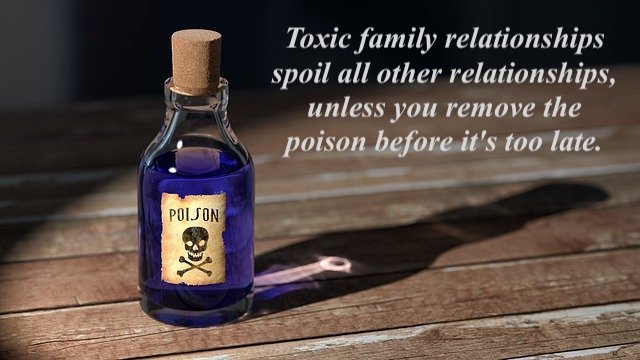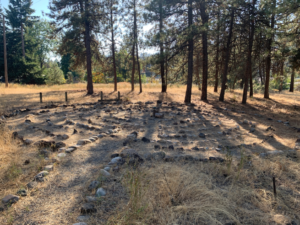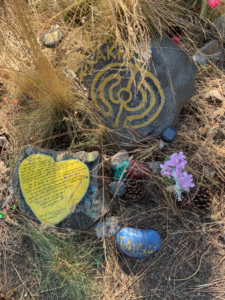And that is what I want to write about today… the ripple effect and consequences of toxic relationships- especially toxic family relationships.
And they lived happily ever after...

Fairy tales ended like that, and it was automatically assumed that they went on to be the stereotypical family with two well-behaved kids, good jobs, a dog, a cat, and a nice house with a white picket fence.
That’s a familiar, if not outdated, stereotype of how things (allegedly) were for ‘most’ American families.
Reality was often markedly different, and for a long time, it was taboo to talk about anything that tainted the picture of a perfect family.
Some households and families are very insular- so children in those families only know of one way to live; that is their idea of how families were supposed to be. In toxic families, such as those riddled with abuse, the view of how the world should be is distorted.
The distortion can be hard to recognize if you only have one place to draw your experiences from. That’s why it can be important to share experiences that happen within your family with people outside the family in order to gain alternate viewpoints that might help shift your perspective.
People will say ‘don’t air your dirty laundry in public’ and I agree that not everything is for public consumption, but having a small group of people that you can share your stories and experiences with can be powerful. You may be surprised to hear from people outside the situation that what you have been subjected to is abusive and toxic.

It may be hard, but open your eyes.
See the truth, not your version of the truth.
Abuse and toxicity come in many forms – it can be physical, mental, or emotional. It may be the result of drugs or alcohol. It may come in the form of someone trying to subvert or control our perceptions of and relationships with other people. Or, it may be that they try to control YOU.
And, it can come from someone who loves you.
Nonetheless, it is still toxic. It is even more damaging and toxic within family relationships, because our family relationships can be very influential and often set the foundation for how we engage in other relationships.
The dynamics of family relationships impact most other relationships, and sometimes we fail to understand or recognize that family toxicity can be the root cause of problems in other relationships.
It can be difficult to separate someone’s actions from your feelings for them – especially when it’s a parent. It feels disloyal to think that a family member, especially a parent, is toxic. Parents, whose role is to love, support and protect us, are held up as as our role model and a source of wisdom, good judgment and guidance.
Unfortunately, sometimes they are not.

Healthy boundaries are essential. When the behavior is toxic, Separate yourself from the toxicity.
You can love someone, but not love their decisions and behavior. And yes, that ‘someone’ can be a family member, even a parent. You can love them and still choose to remove yourself from their toxicity.
It may require establishing new, uncomfortable boundaries. You may find that you have to redefine your roles and relationship. It may be unpleasant to have to directly address the behavior of someone you used to believe was above reproach.
You may struggle with holding your family members accountable in new ways, so it is important to practice communicating the new boundaries.
Here are some examples of how to communicate new boundaries:
- “We can talk about about [A+B]. I’m not willing to discuss or hear about [C].”
- “I hear what you are saying, but that isn’t my experience”
- I understand what you are saying, but that is not how I feel about [A]. We’ll have to agree to disagree.”
While those are very general examples, you can mix and match and be more specific, e.g. “I know you carry a lot of animosity from the divorce, but she is my mother. It’s important to me that you are respectful when you speak about her, and it is damaging to my relationship with you when you don’t. I’ll have to end conversations with you when you are negative and toxic.”

Boundaries help define and protect what is important to you. Healthy people have healthy boundaries.
Sheli Dodson Tweet






2 Comments
Sheli this is a wonderful output that helps put things in perspective. I love that you give examples of how to set boundaries.
Love this post. We should revisit the idea of the “And” post you and I talked about on our walk.